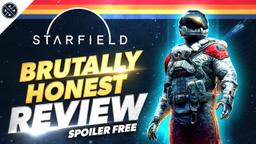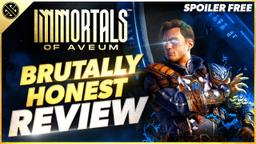Starfield
Written by - Codiak
Updated: September 9, 2023
|
Posted: September 9, 2023

Starfield has arrived, and it’s surreal to actually be writing that out. Bethesda was gracious enough to give us plenty of time with the game, almost 2 full weeks, and even still, I’ve barely scratched the surface. When I say Starfield is the biggest game I’ve ever played I’m not joking. It’s a game on a galactic scale and while the developers have been saying that for a long time, it’s something else entirely to experience it for yourself. That being said I have put in some serious time with the game, and after over 100 hours searching the stars it’s fair to say I’ve put the game through its paces.
Bethesda At It’s Best
Starfield is Bethesda’s best game. That’s the headline. Everything that we’ve come to know and love about a Bethesda game is on full display in Starfield. Something familiar like they’re iconic dialogue interactions is a staple in this game, but it’s elevated to its best possible form. The same could be said about combat, which is in the same vein. We no longer have a VATS system to lean on, but the introduction of new and different combat systems kept me entertained and it was, simply put, the best version of Bethesda combat.
Starfield is Bethesda’s best game.
What I’m getting at is this. Starfield is Bethesda at its absolute best. The decades of work and the foundational systems they’ve built in games like Fallout and Elder Scrolls are all utilized or transformed and worked into Starfield. Think of it like this, it’s the Bethesda experience dialed up to 11, on every front. It’s familiar, oh so familiar, but also refreshingly new when it needs to be. Then there’s the game’s scale, which I’ll reference constantly throughout the article, because even with some flaws creating a game this good, this ambitious, is simply incredible.
To put this into terms that might actually be helpful in the context of this review, if you’ve played a Bethesda game before you’re going to feel right at home in Starfield. Almost every system, outside of a few new ones we’ll talk about, are variations from previous games. If you’ve liked their previous games I would bet money on you liking Starfield, but if games like Fallout and Skyrim never really “clicked” you might not be blown away.
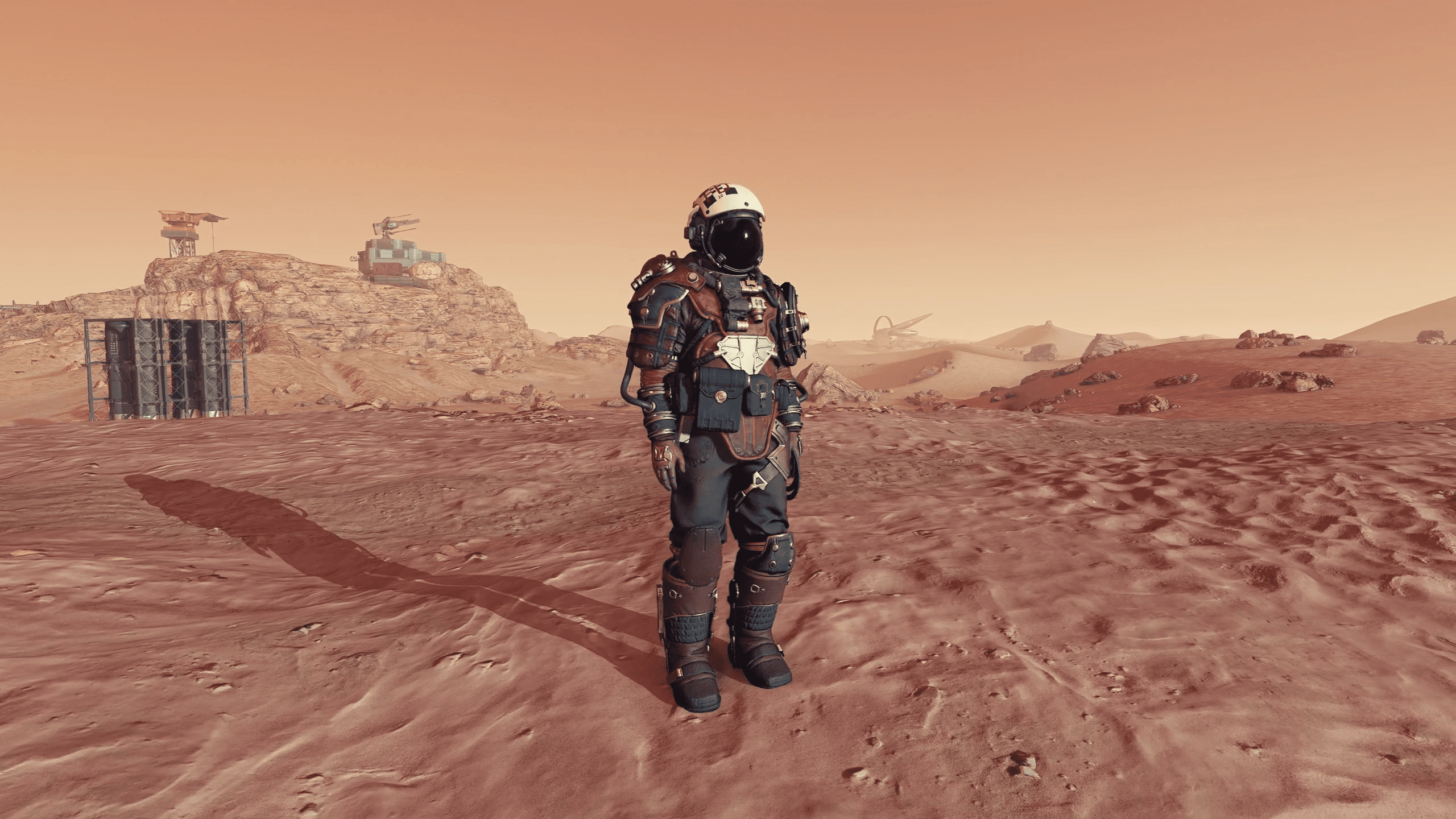
From a story perspective this is hands down their best storytelling to-date, and I mean across the board. The team genuinely tries to tell engaging stories with unique characters you meet across the universe and this is at the very heart of the game. Your adventures hinge around Constellation, a group of explorers trying to solve one of the universe’s greatest mysteries, but along the way you get pulled every which direction, talking to strange people you meet on the streets, or find yourself aligning with a faction, all of which lead you down a completely new path.
What really won me over was the combination of character models, voice acting, and writing. There are some genuinely funny and deeply personal moments that managed to make me feel something, which doesn’t happen that often in games nowadays. Not every conversation is a winner, and the constant need to check in with your companions can become a little tedious, but it really depends on what you get enjoyment out of when it comes to your games. If you like talking to everyone, learning their story, hearing crazy tales about the universe, you’re going to be in, hook, line, and sinker. If you’re someone that doesn’t really care about dialogue and a compelling story, there’s still stuff for you to do, but you do lose the essence of the game.
I think it’s safe to say this is the most RP Bethesda has ever put in their RPG, and while that’s a corny line, it’s the best way to describe how it feels to play the game, with you at the center of a massive space opera.
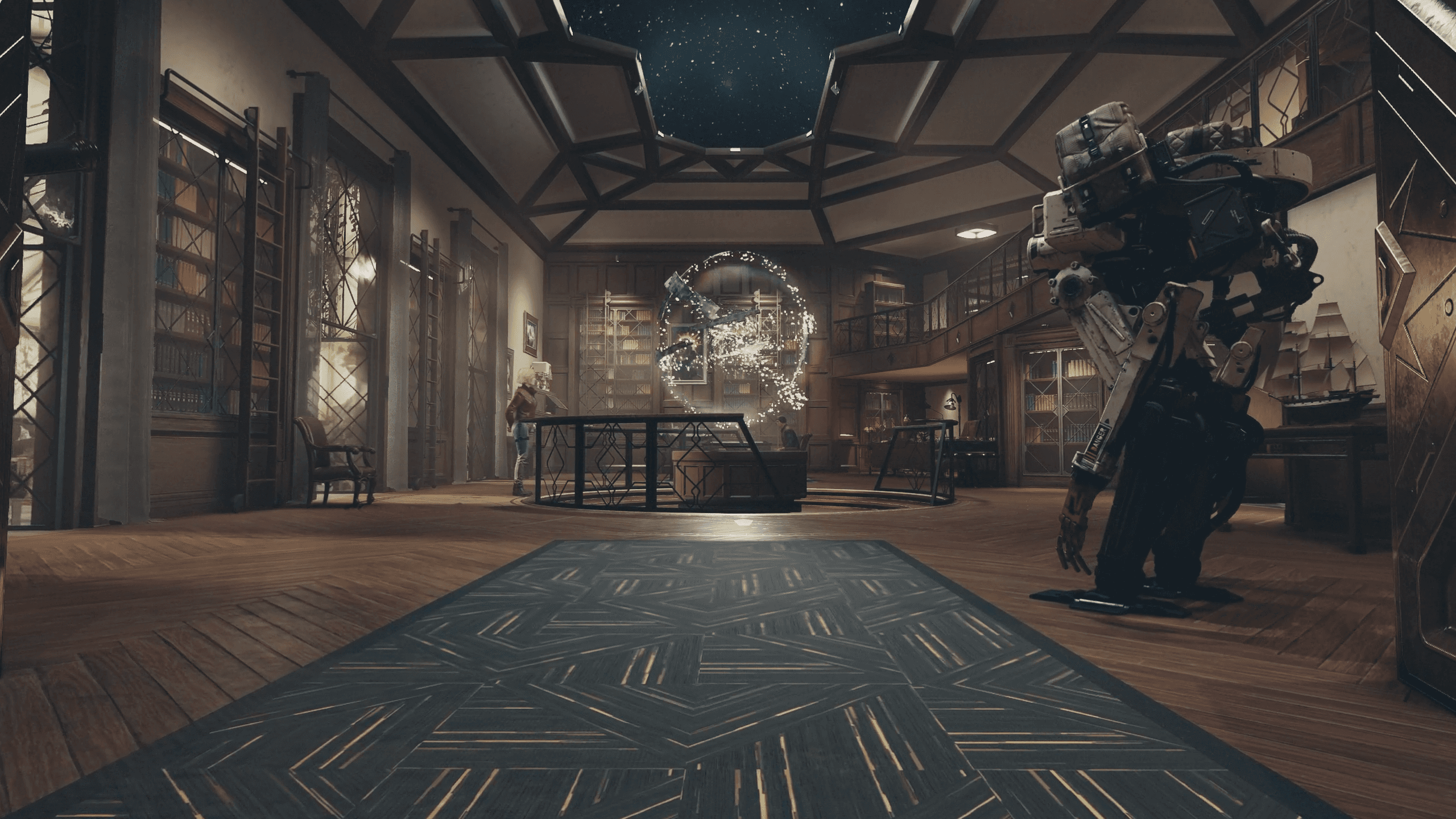
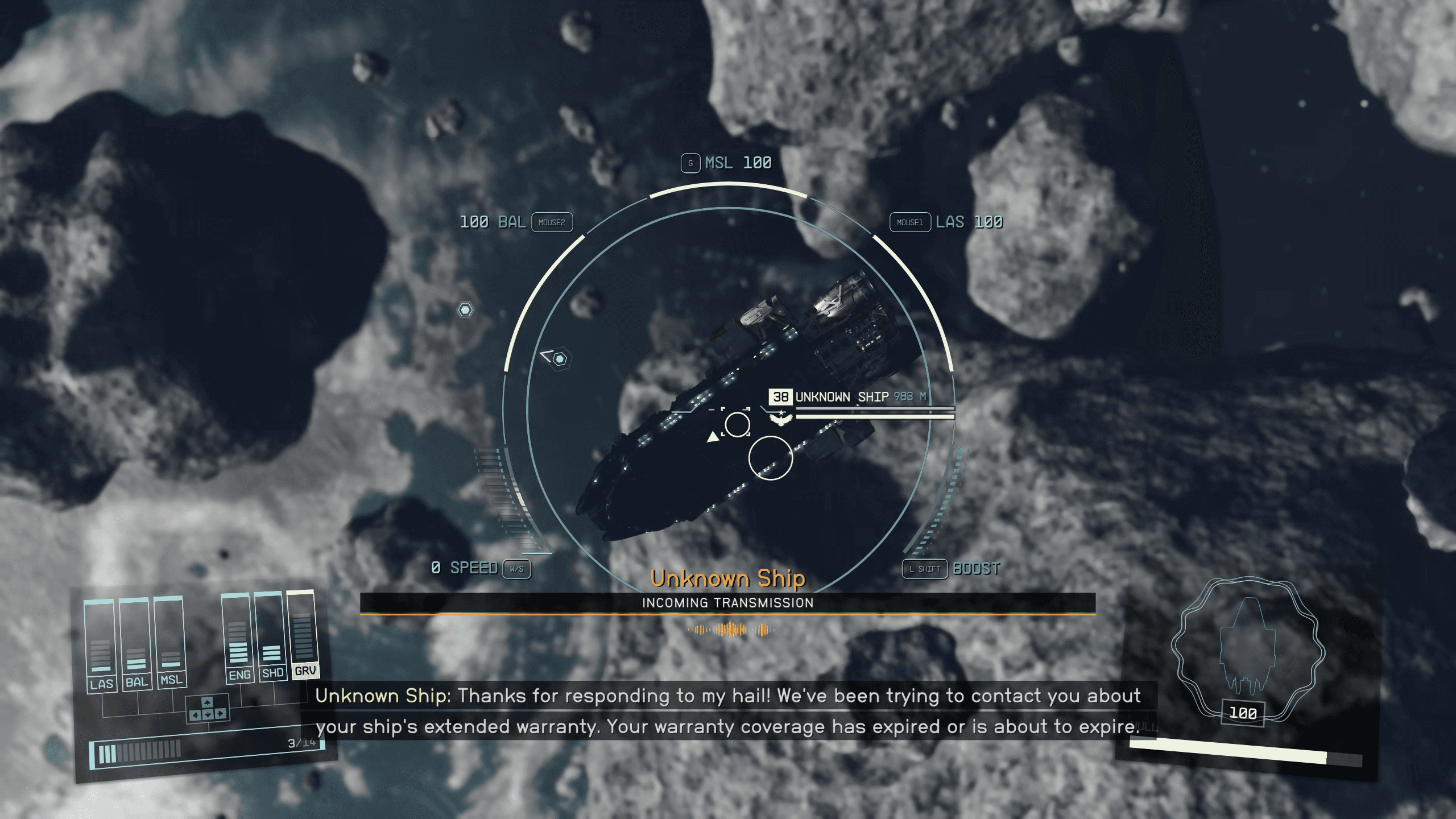
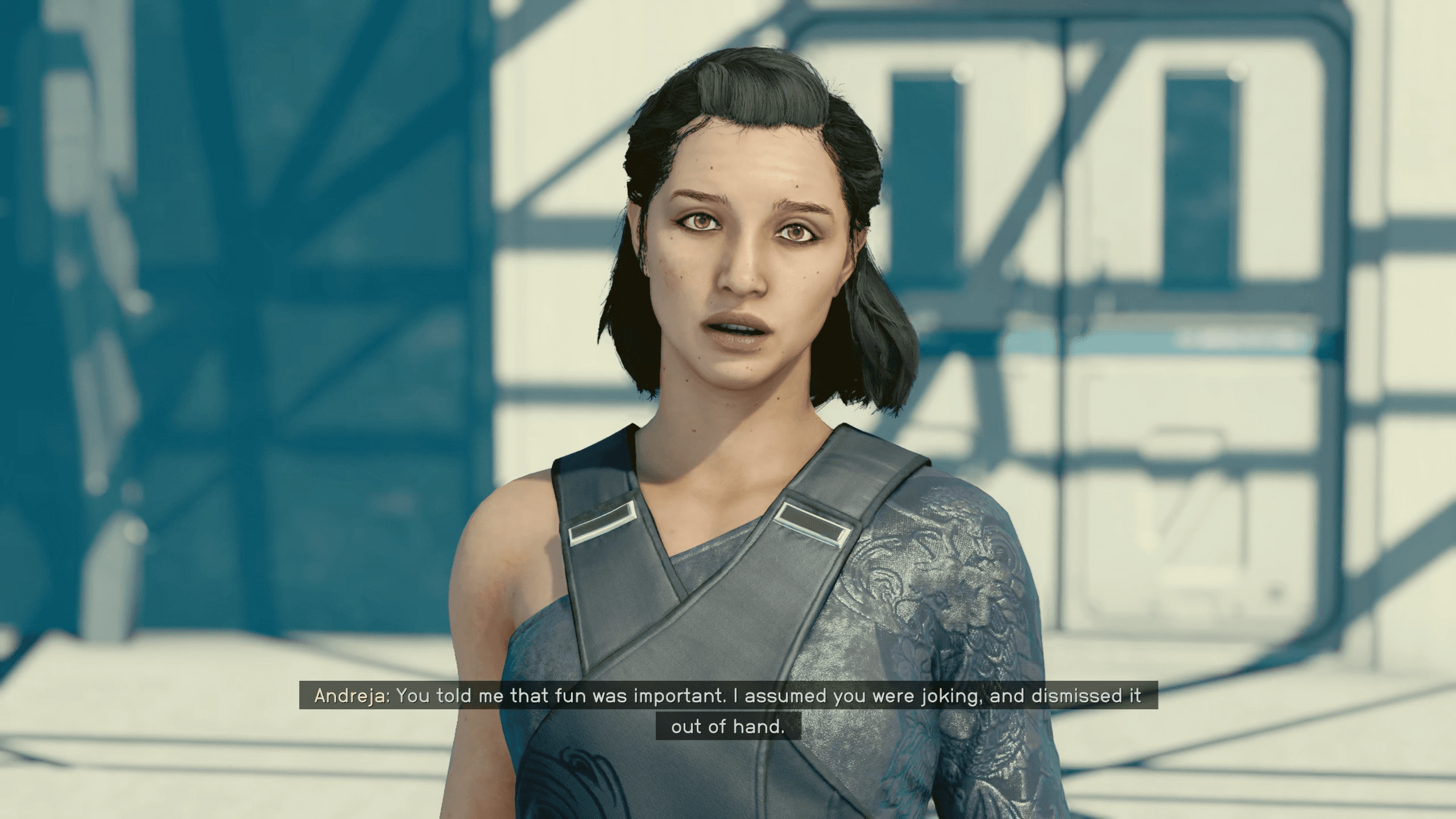
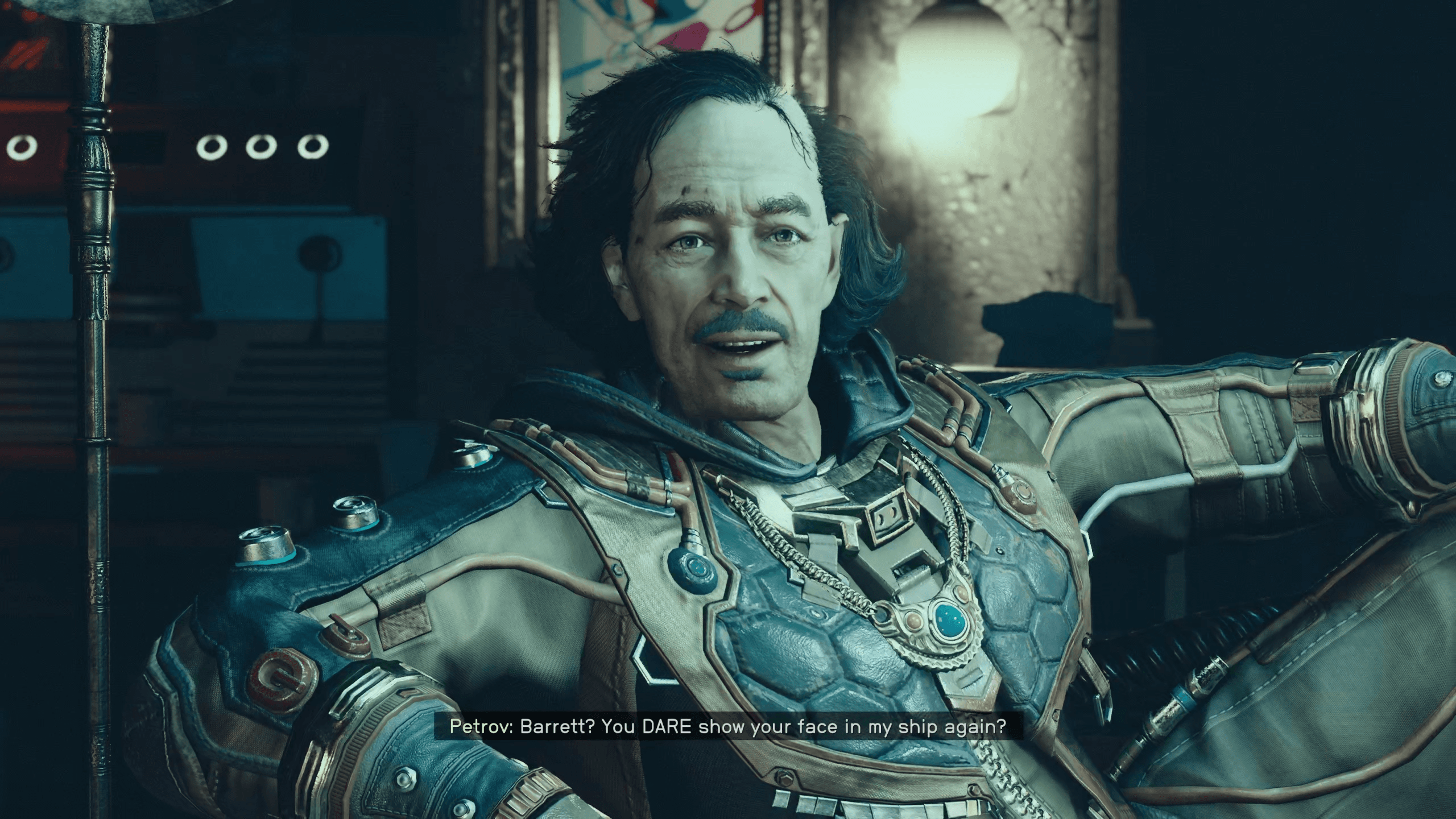
Huge New Experiences
Starfield isn’t all about polishing up old systems and making them new. In fact the team introduces a number of things that truly captured my imagination as a player, that I believe will resonate with the community at large.
First is the game’s ship building system. I more than dabbled trying to create my own star ship, and after about 3 hours, I had to move on or I would have never stopped. You can go as surface level, or as in-depth as you want, and that’s what I love about this aspect of the game. If you want to just go to the technician and buy a new ship, you can do that. You’ll never have to step foot in the ship builder, and you’ll still have access to new toys to play with. If, like me, you want to create something truly epic…which I’ve yet to actually accomplish, you can explore ship building, which lets you meticulously rip apart your ships and rebuild them from the ground up.
If you’re someone that plans on spending a lot of time on your ship this will be the rabbit hole you fall down most likely for hours on end. Each time you visit a spaceport you’ll have access to new parts, and by investing points in certain skills you’ll have access to even more. It’s a system tailor-made for anyone that’s ever fantasized about racing off into space in their own custom-made ship, and they absolutely nail the execution.
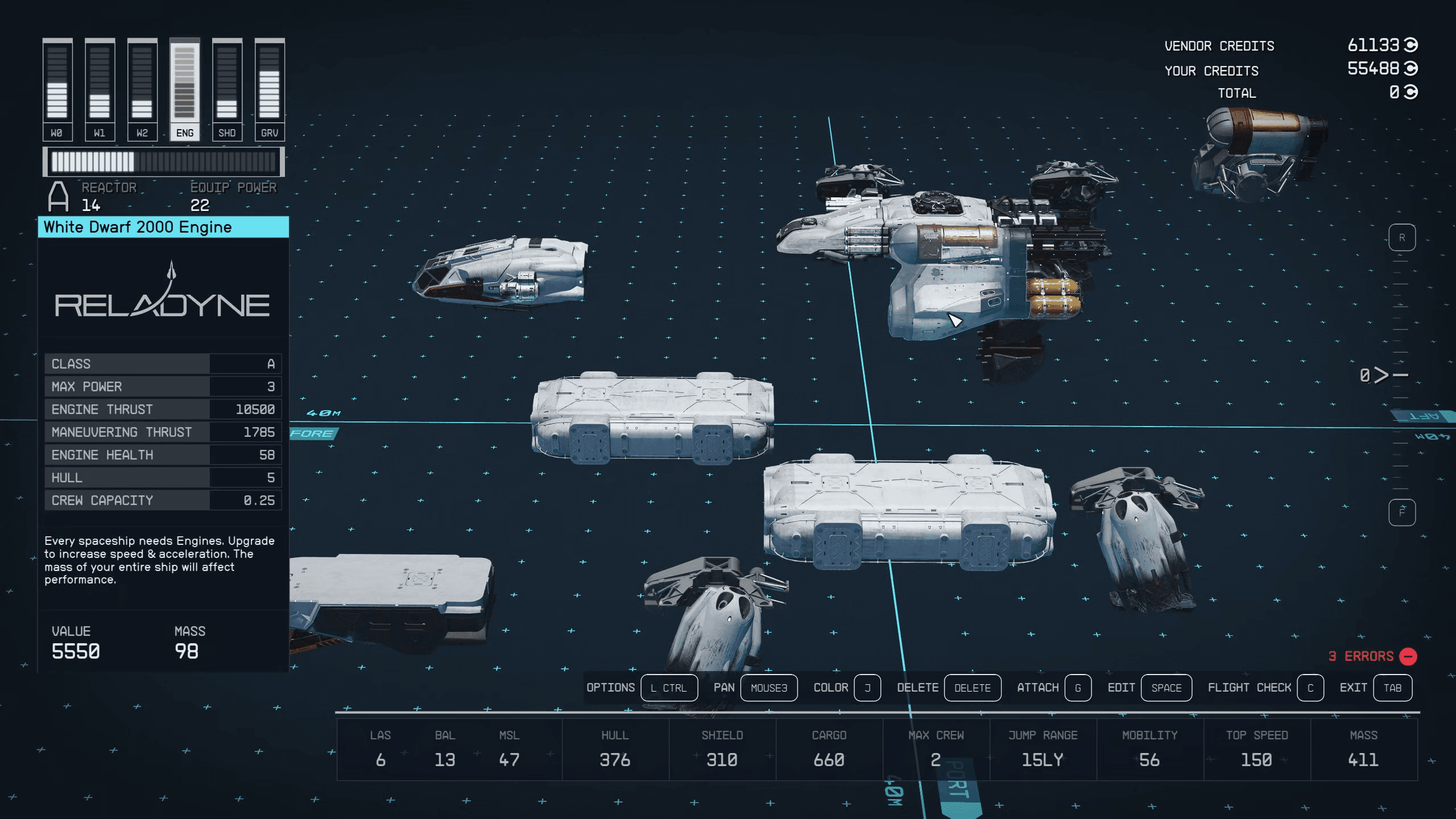
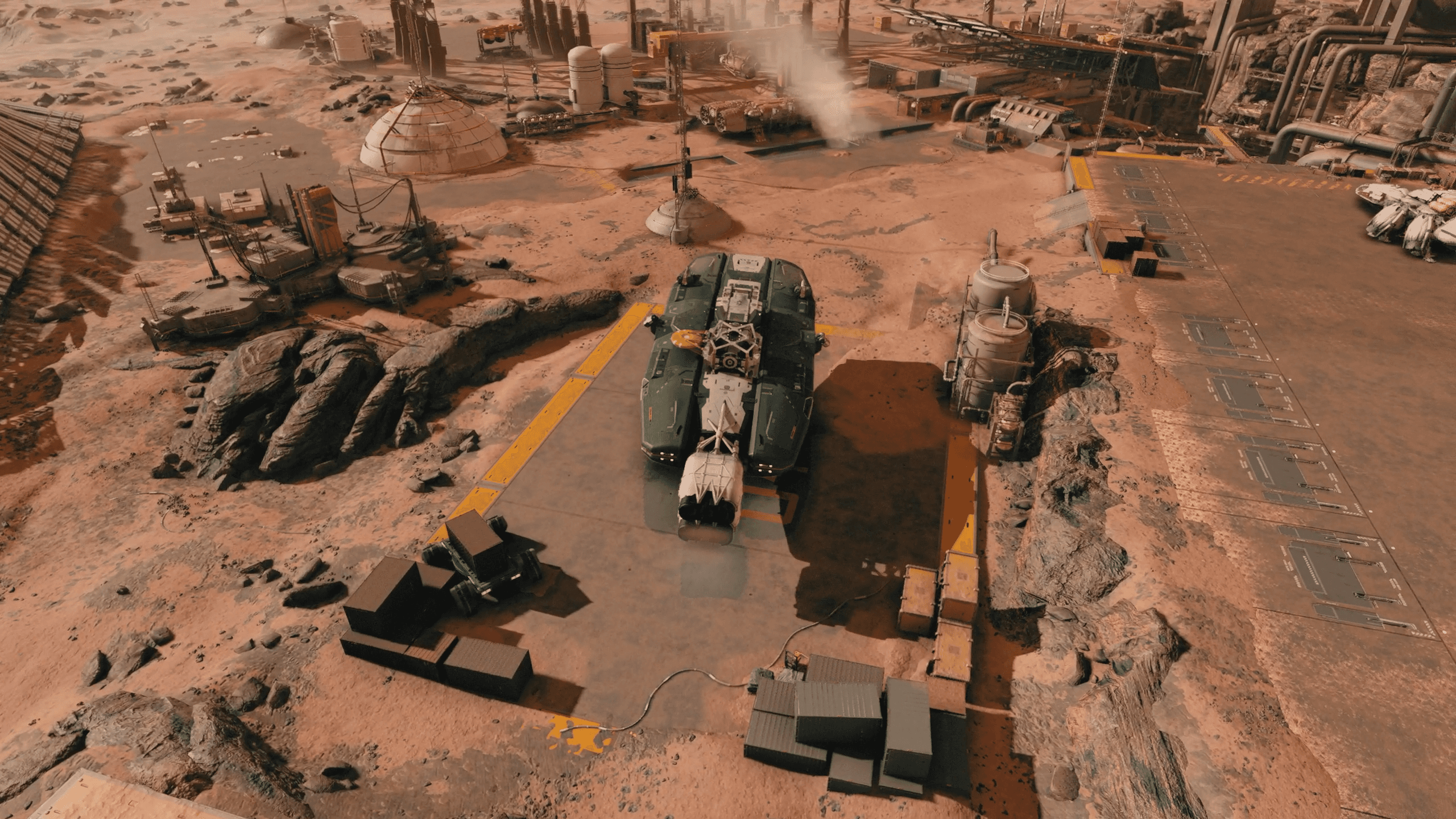
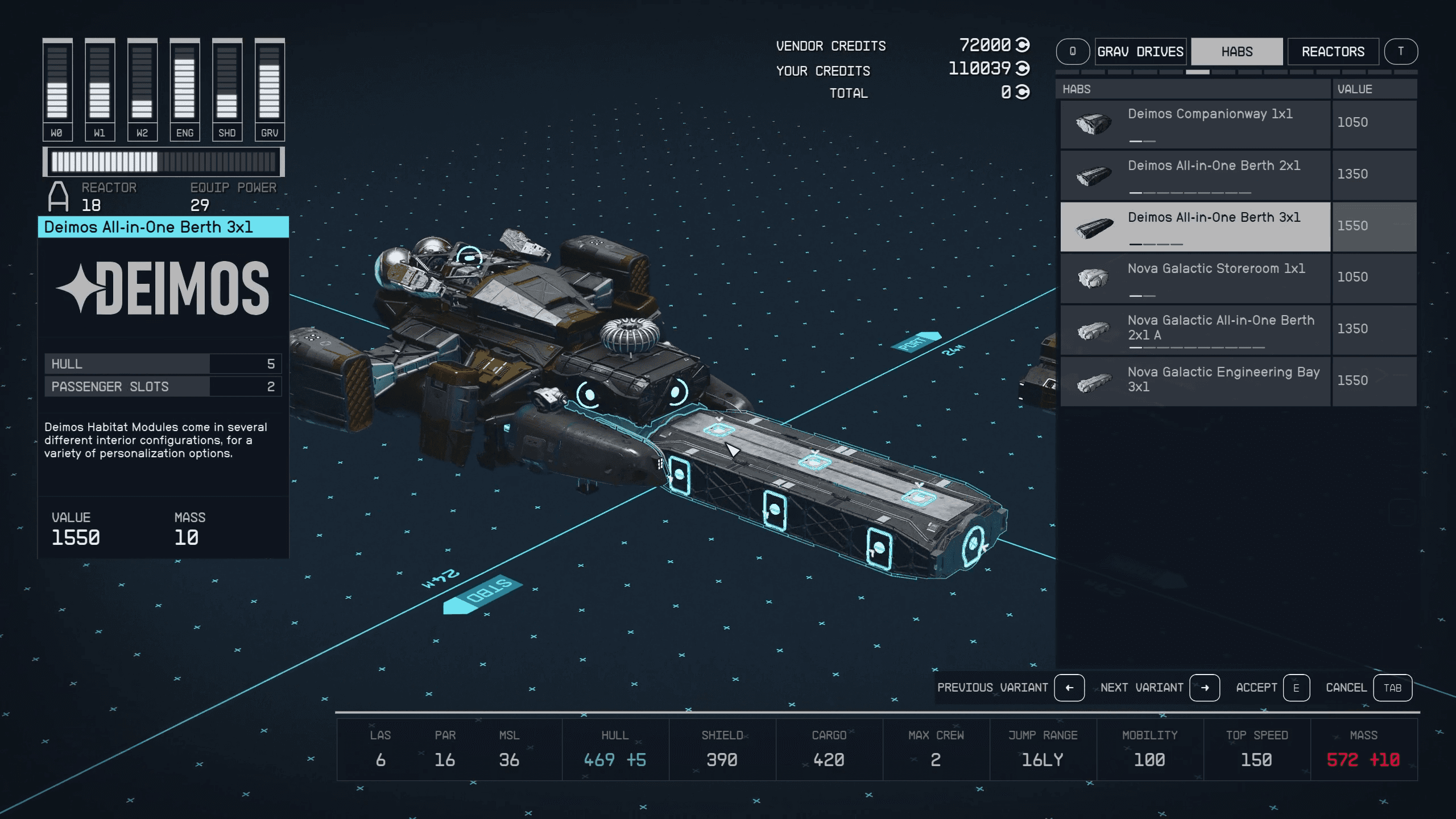
In a similar vein if you thought building a settlement was intense, get ready for outposts because both systems together could keep you away from ever doing anything else in the game. That’s obviously a huge exaggeration and both systems aren’t exactly easy to get up and running, requiring hours of farming, but they’re deeply customizable which makes them a tweaker’s paradise.
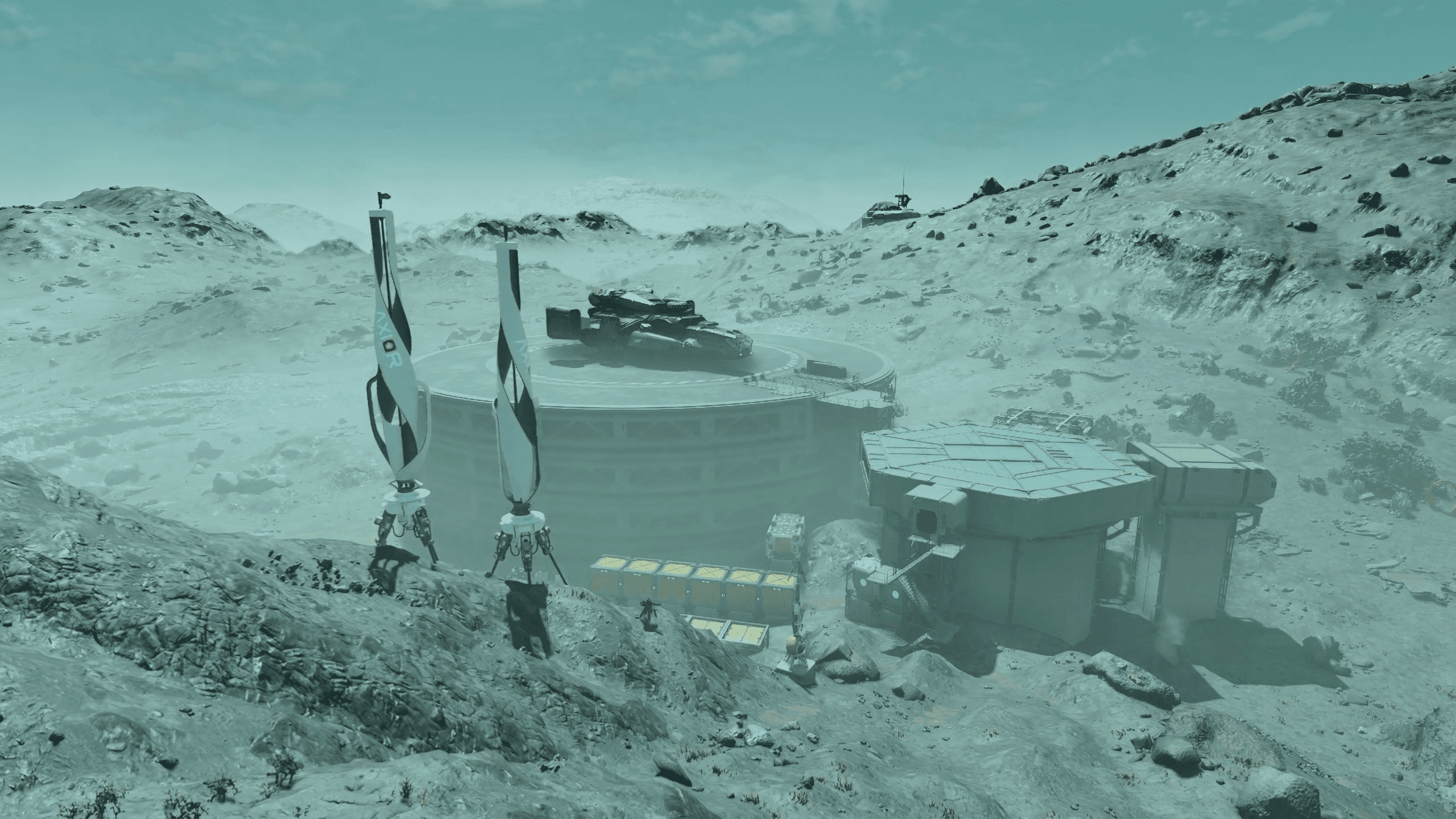
However, none of this holds a candle to one of the game’s biggest new systems, the universe. If you thought walking across Skyrim was an endeavor, try navigating the very heavens themself. Now I won’t sit here and tell you I’ve visited every planet, cleared every point of interest, because anyone with review access, claiming they’ve done that is straight up lying. The game’s star map is one of the coolest, yet most intimidating things in all of Starfield. From here you can navigate to any system in the Milky Way galaxy. Once you select your galaxy you can view the planets in that system. Then, take it a step further and view a singular planet, scan it to determine what resources are available, and eventually pick your landing spot. At the end of that little experience is a planet, ready to be explored. Unfortunately, these are not the true full-sized, seamlessly explorable planets we thought we’d be getting.
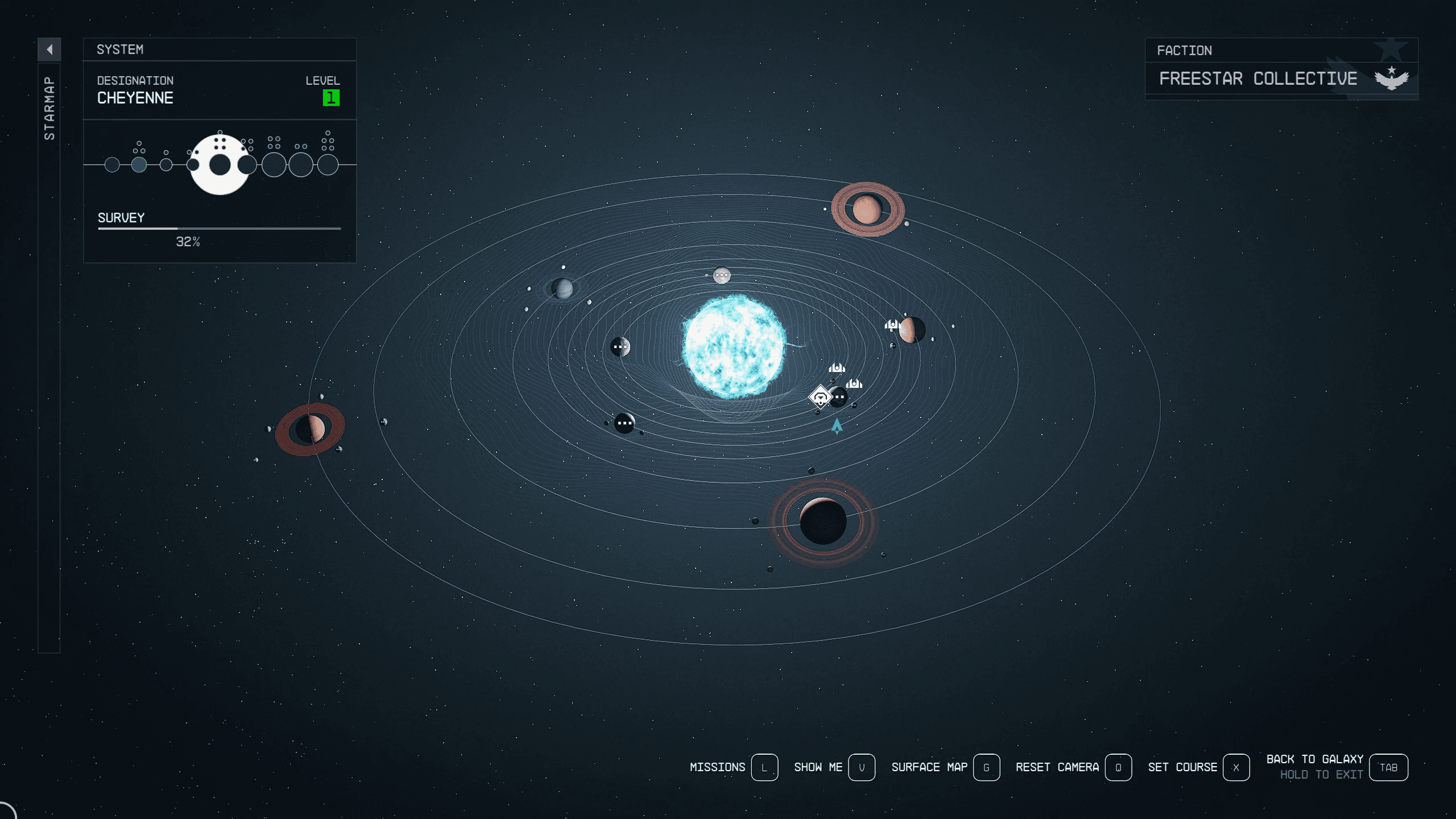
Leading up to launch there was a lot of discussion about boundaries and what’s actually explorable and what’s not. What I can say is this, there is a limit to exploration in an area, because of the game’s procedural generation, and eventually you’ll hit a hard boundary. Planets are really just several large areas stitched together via loading screens, and that’s definitely a different experience than running free once you touch down. Does this change my overall impression of the game, absolutely not, but is it a cut corner most likely forced by technical limitations, yes. If immersive storytelling was one pillar of the Starfield experience, exploration, which encompasses a whole heck of a lot, is a second pillar. Whether you choose to explore 1000 planets, build a custom spaceship, or set up a few outposts and make one of them your home amongst the stars, the lengths the Bethesda team has gone to create some new experiences is, for lack of a better term stellar.
Too Big Not To Have Problems
If there’s one thing everyone knows about Bethesda games it’s that they’re often littered with bugs. Some small, some hilarious, some game-breaking. With a game the size of Starfield can you actually expect perfection? I think some players will, but what I found in my 100+ hours of playing the game is that the team manages to do a great job keeping the major issues in check, while still allowing some hilarious issues to slip through the cracks.
I’m not going to sit here and pretend my experience with Starfield was perfect, it wasn’t. On my playthrough I dealt with at least 2 hard crashes, a number of graphical bugs, some hilarious physics based issues, and then some progression hangups. Most of the problems I ran into I sorted out the traditional way, by loading up a previous save and trying to move past the issue, and that worked, to a point. Our team did also encounter at least one true progression blocker and no matter what we did we couldn’t advance the quest, which was definitely frustrating. What I will say is that I’m willing to give Bethesda a lot of grace on this front. None of the issues I personally encountered stopped me from enjoying the game for more than a couple of minutes. Was it inconvenient, sure, but does it cheapen the Starfield experience, not at all.
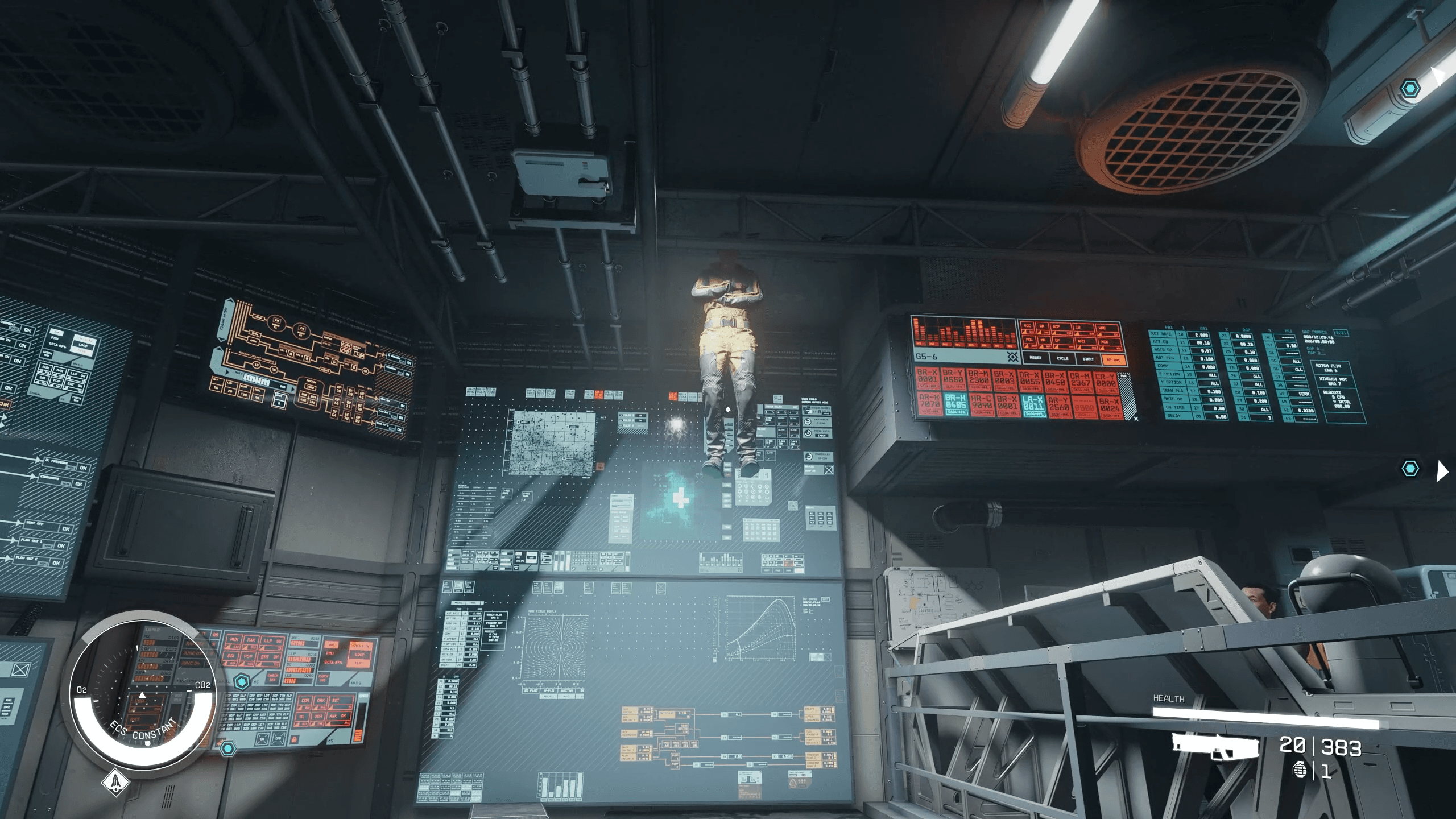
There’s also a really good chance many of the issues we experienced won’t be present after launch day. The team sent out the day-one patch notes a few days ahead of launch and I was happy to see so many of the issues I experienced on the list. I can’t say if they’re completely gone from the game since I spent all my time on a review build, but to see them addressed so early in the game’s life is promising.
Where I think Starfield is really going to trip people up is with the sheer amount of load screens you have to wade through to experience the game in full. If you’re on a PC with an M.2 drive this isn’t as big of a deal, but every time you fast travel, lift off from a planet, go into a new area, really anytime you leave one location and go to another you have to sit through a load screen. As with all annoying things you become accustomed to this, but it’s absolutely the issue that I think most people will gripe about.
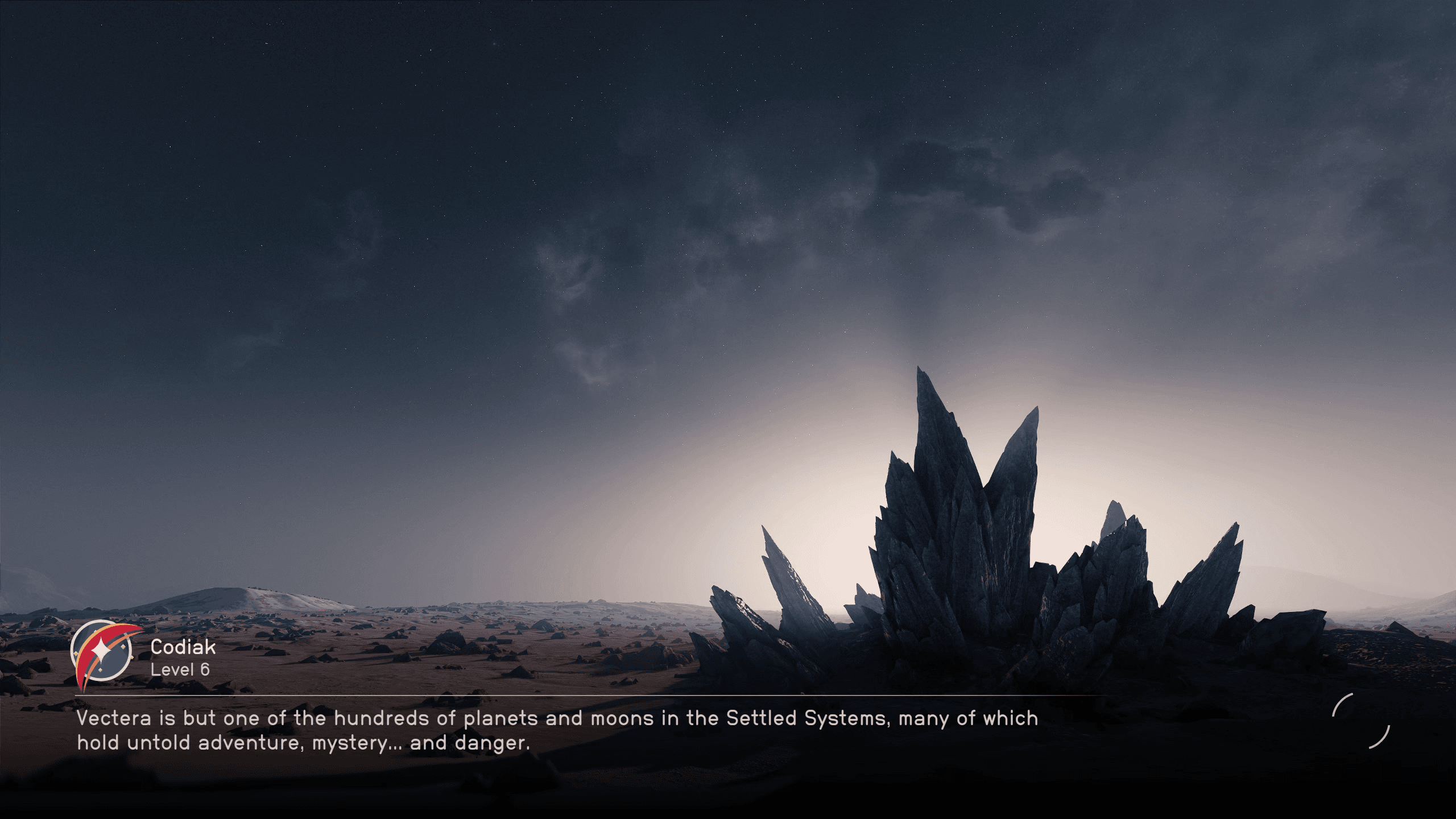
I’m not going to pretend I know the first thing about game dev, but I can imagine there are a number of technical hurdles that prevented the team from doing more seamless exploration, but with games like No Man’s Sky and Star Citizen proving that it’s possible to go from planet to atmosphere to space without a single loading screen, it makes you kind of wish Starfield had that capability too. It’s a longing for something even more immersive because, by most accounts, the game gets it right, but this will absolutely be a talking point amongst the community after launch.
To tack on to the subject of exploration we knew going into launch that there wouldn’t be any ground vehicles in the game, that we were meant to run and jump our way across the galaxy, and straight up, this got exhausting. It’s not bad on planets with low gravity where you can kind of jump and sail for a few seconds, but once you’re brought back to the reality of a planet that exerts more natural forces on you it becomes an absolute slog. I’m not going to pretend to know the technical limitations here, but it sure would have been nice to have an option here, even something simple like a small speeder bike.
Citizen of the Stars
There’s no doubt in my mind there will be a fair number of players out there looking to approach Starfield as a gameplay first experience. They want to dogfight in space, defeat spacers and pirates alike, all while leveling up their character and collecting epic loot.
The Bethesda formula is hardly changed in this regard, and while there are some new systems worth talking about, it’s all wrapped up in a larger gameplay experience. Let’s start planetside with traversal and combat. At some point the developers said that combat was completely revamped, thanks to the new Creation Engine 2, and I’ll be honest I didn’t really feel that. As I mentioned in the first section of the review, combat feels like Bethesda’s best version of the experience, but it’s far from the most advanced combat experience you’ll find out there.
There are loads of weapons to choose from and the diversity of the offering is great, but I wouldn’t call the experience masterfully designed. It’s familiar and that’s all well and good, but if you were to compare Starfield combat against some of the industry standards of the day, it wouldn’t compare well. For a casual audience I don’t think this is going to matter much, and a slightly more basic combat system will probably endear them to the experience, but more traditional FPS players are not going to find it satisfying.
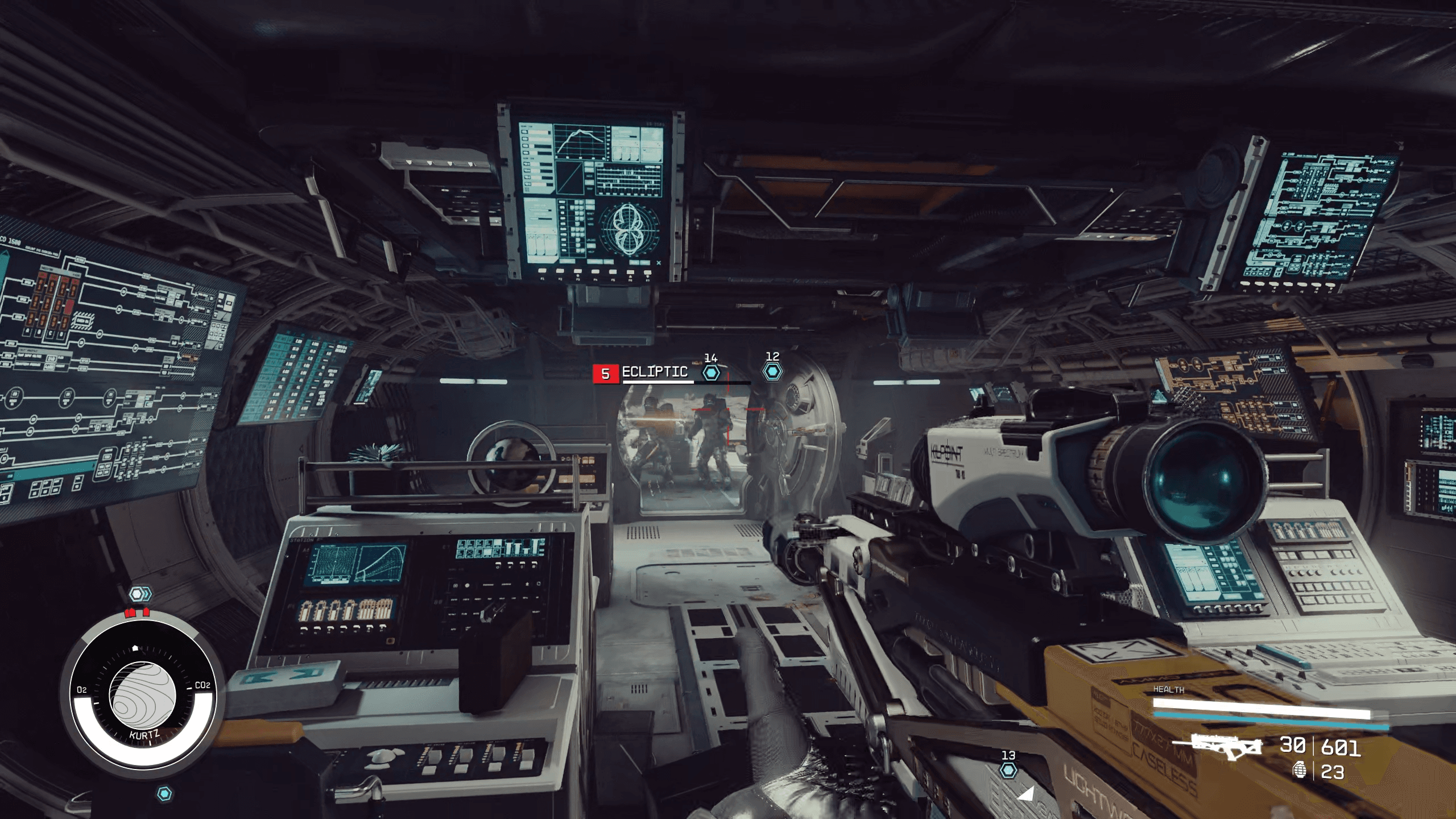
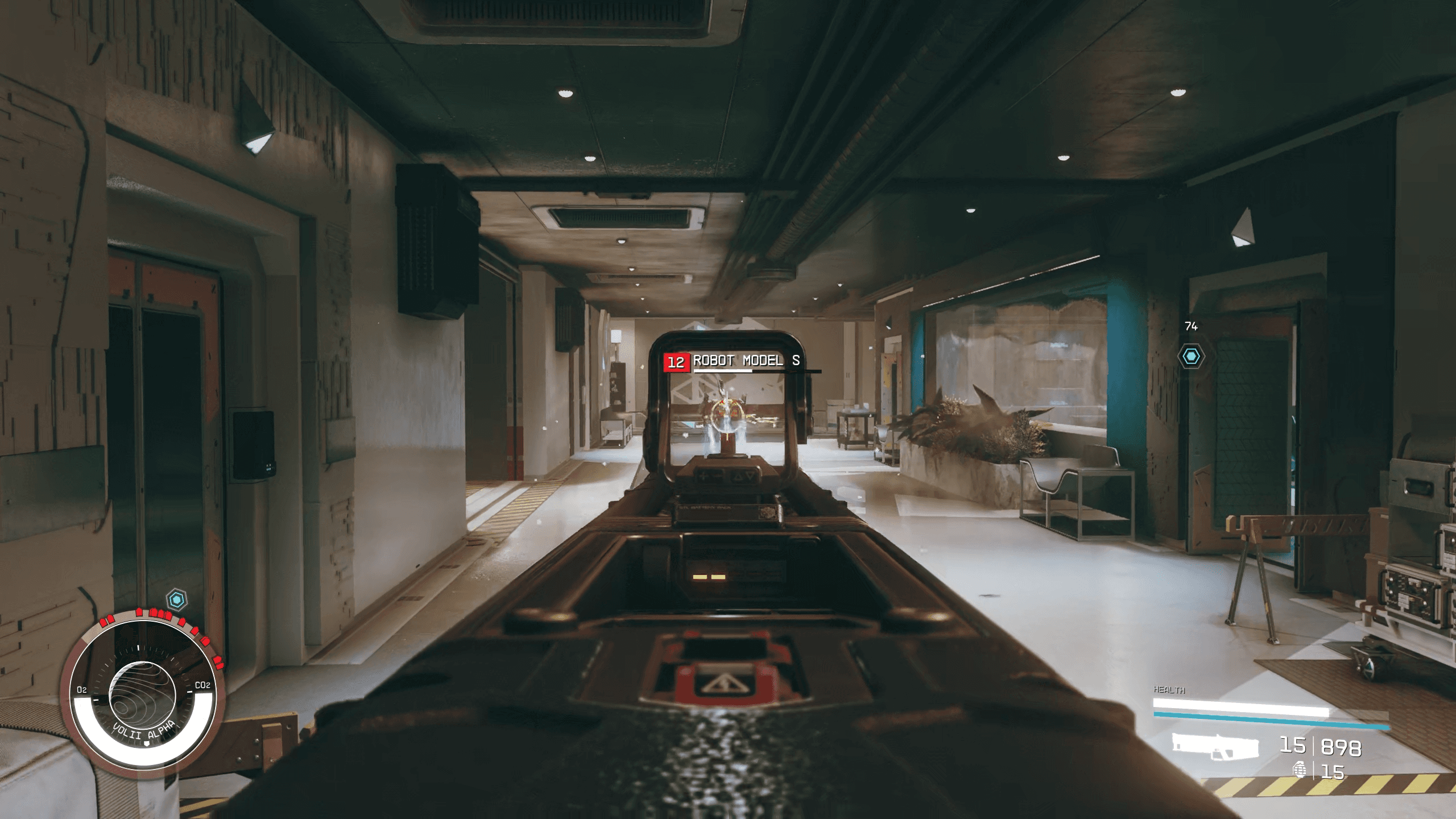
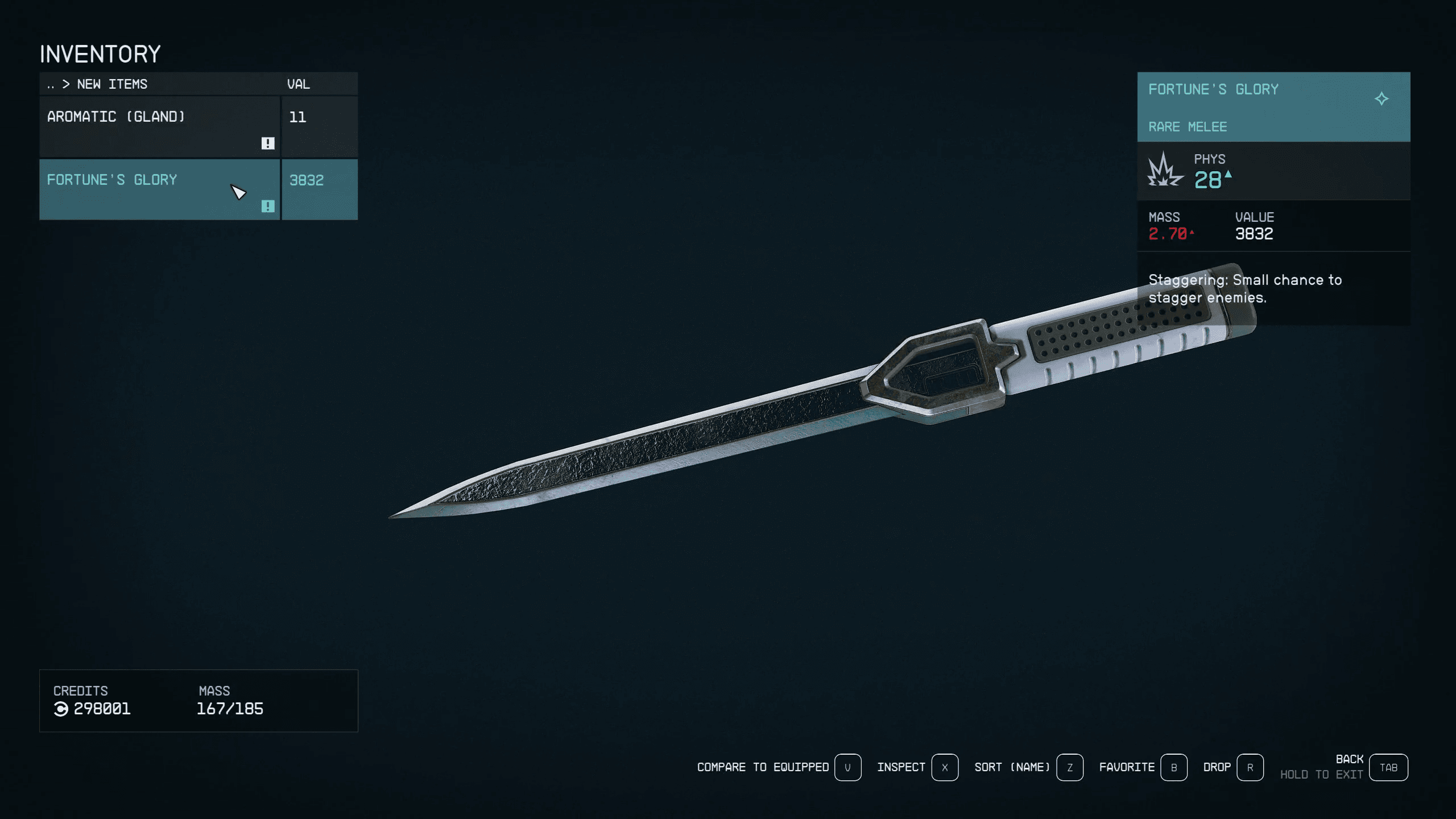
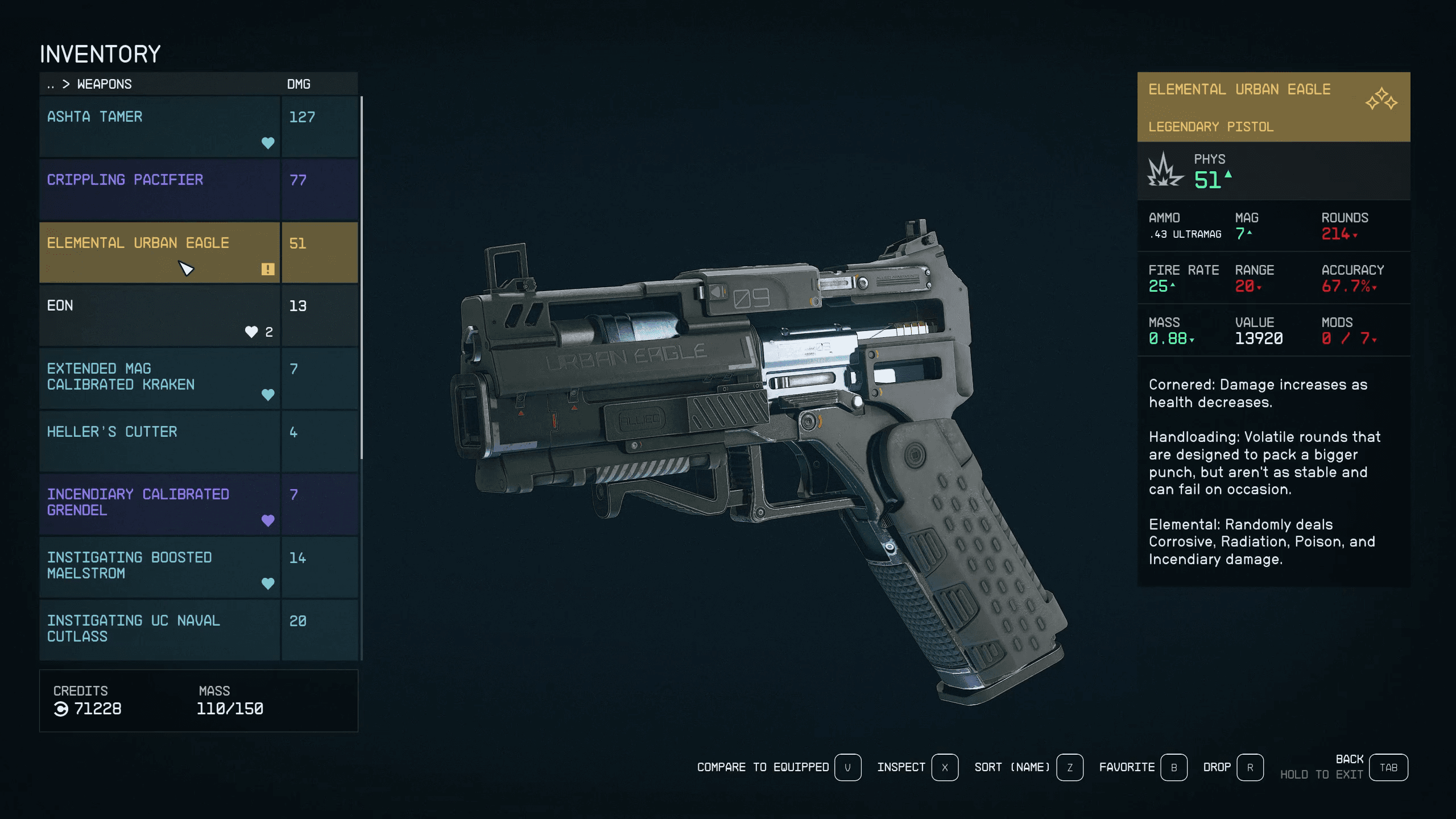
Luckily on the traversal front boost packs and low gravity really save the day. That combination single handedly makes getting around the world, while on foot, really enjoyable. After 100+ hours with the game I can honestly say I’m still not bored of boost packing around planets and floating around in lower gravity environments. The other things that would have made traversal feel more modern like sliding and peaking are still notably missing from the game, and that’s definitely a knock. Again, it feels familiar, but far from modern.
Everything you do in the game feeds into Starfield’s skill system, which I personally love. Things break down into 5 core trees and each of those trees offer a wide variety of skills that change the nature of the game. The kicker is though, to rank up each skill you need to complete a challenge with that skill, which forces you to invest in its improvement. I love this subtle change to the system because it connects your experience in game with direct improvements with the skills, and I think that’s a connection that’s not often made in games with skill trees.
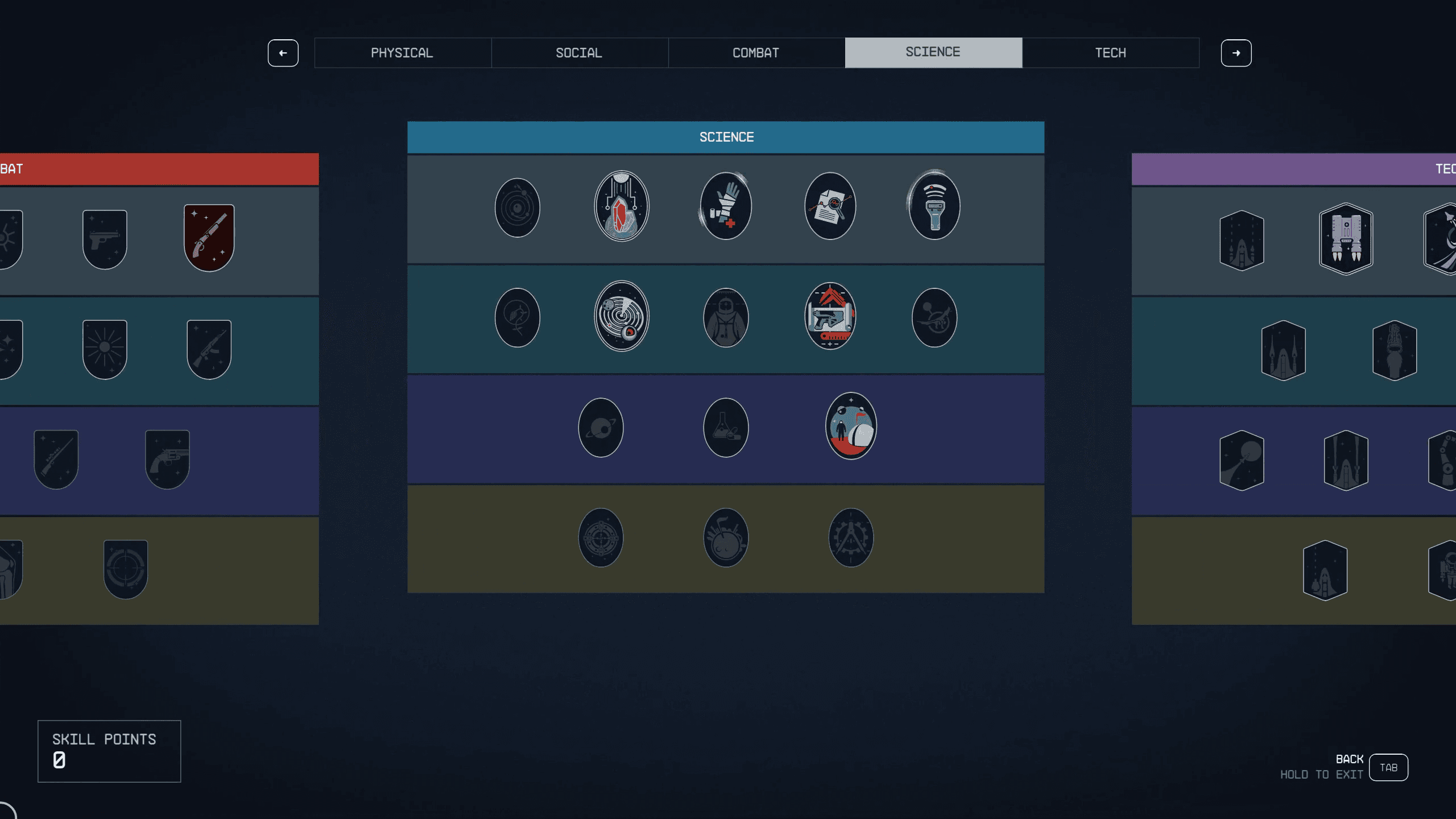
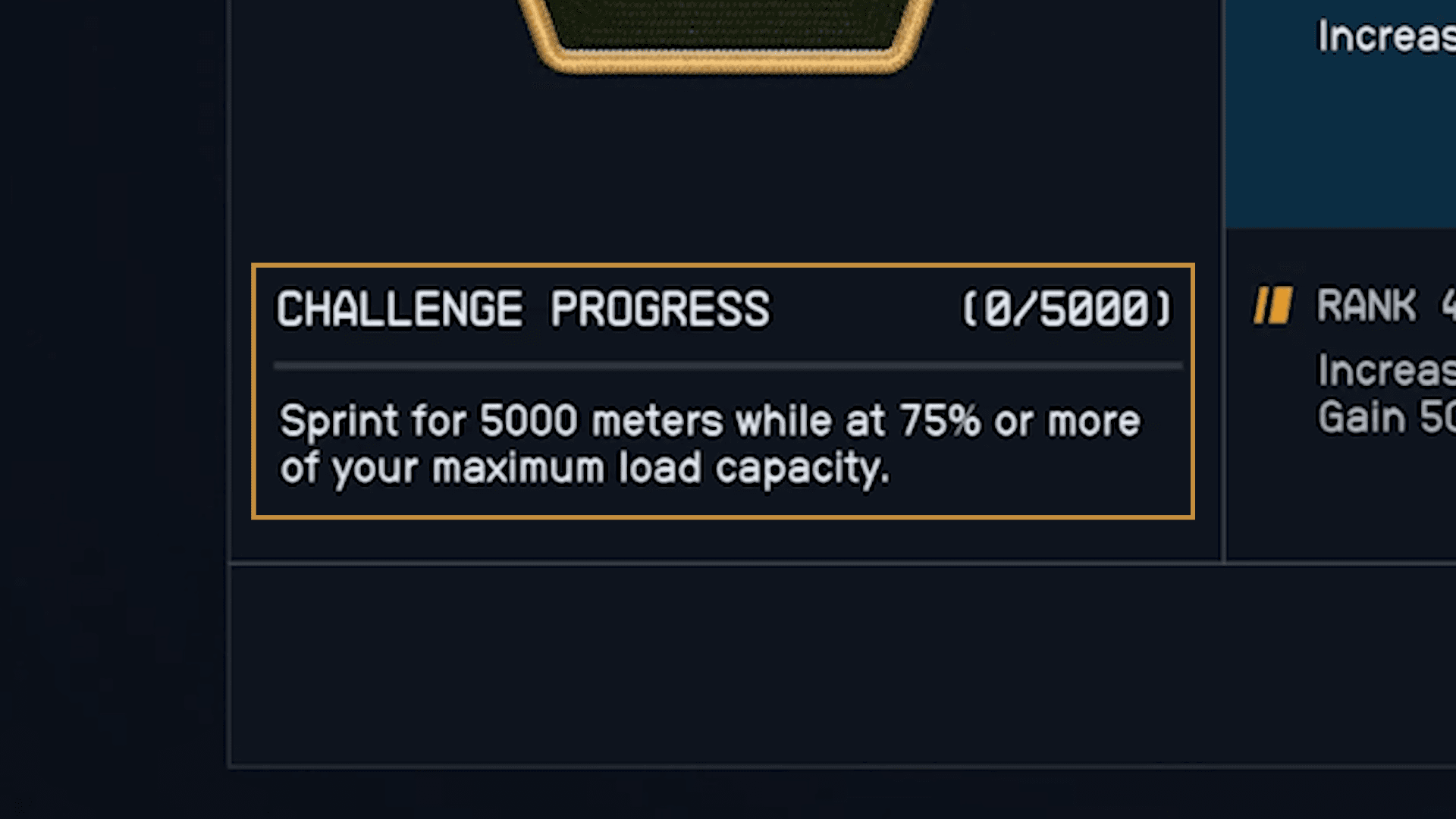
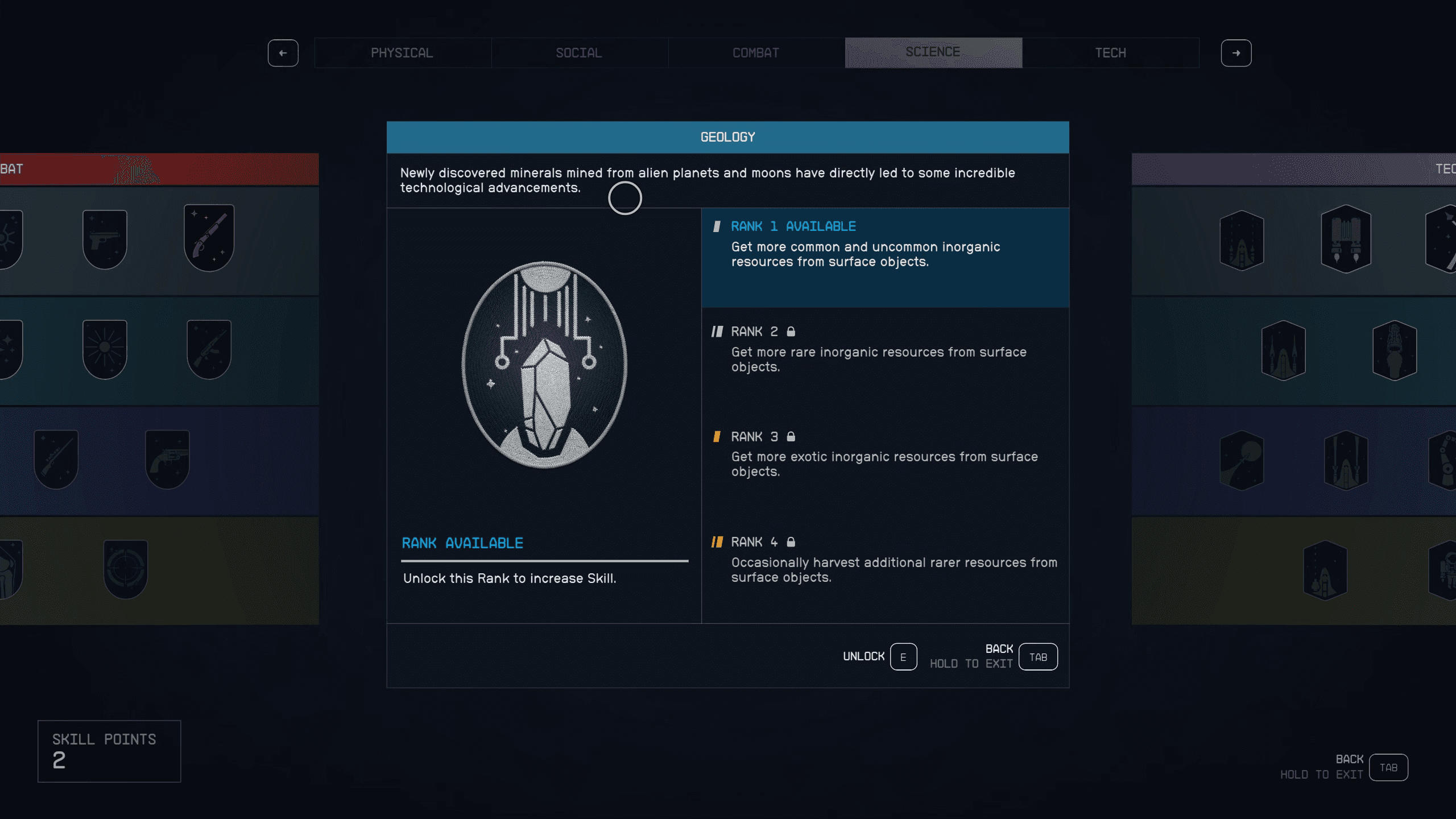
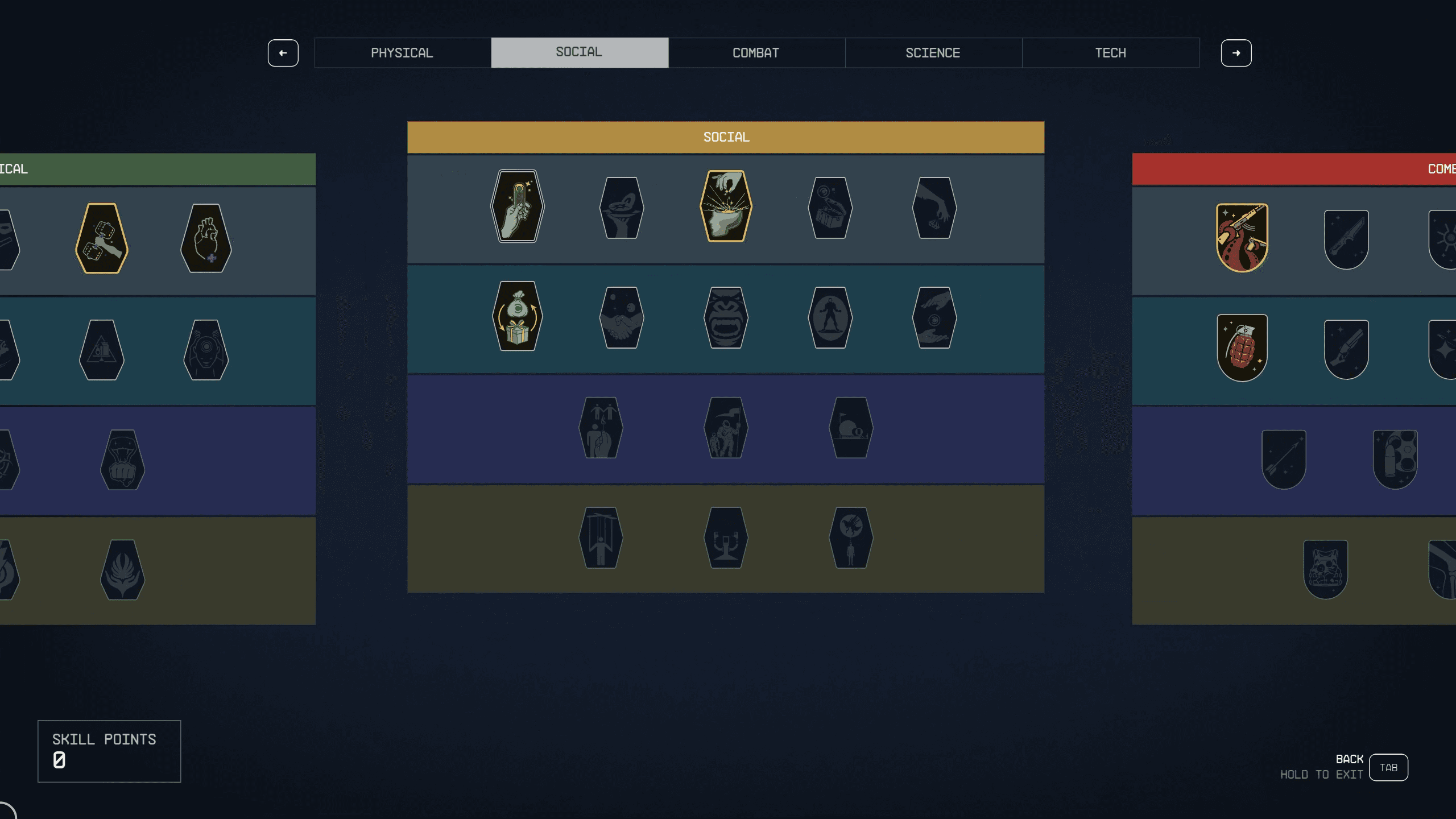
I have to imagine you’re also curious about exploring space dogfighting, and boarding enemy ships and how all of that ties into your overall experience. Fighting in space is interesting to say the least. Dogfighting definitely falls on the more arcadey end of the spectrum and if you’re coming from games that lean further into the simulation side of things you’re going to immediately feel the difference and most likely hate this. I personally don’t mind space combat, but I will say managing power systems is far less of an immersive system than the game made it out to be. You pretty much strip the available power from your grav drive, juice your weapons and engine and then forget about the system. The balance also feels off, especially early on. Oftentimes you’ll be up against 2 or 3 other ships and at that point in the game it can be brutal just to clear the field of enemies. Considering that you “heal” your ship the same way you’d use a medpack and it’s a less than thrilling experience.
What’s far more enjoyable is boarding enemy ships, stealing their cargo, and claiming it as your own. This experience felt vastly different from space dogfighting and I thoroughly enjoyed this experience every time. It’s a great example of how a small system can have a huge payoff and if 15 minutes of work means I’m adding a new ship to my armada I’m all for it.
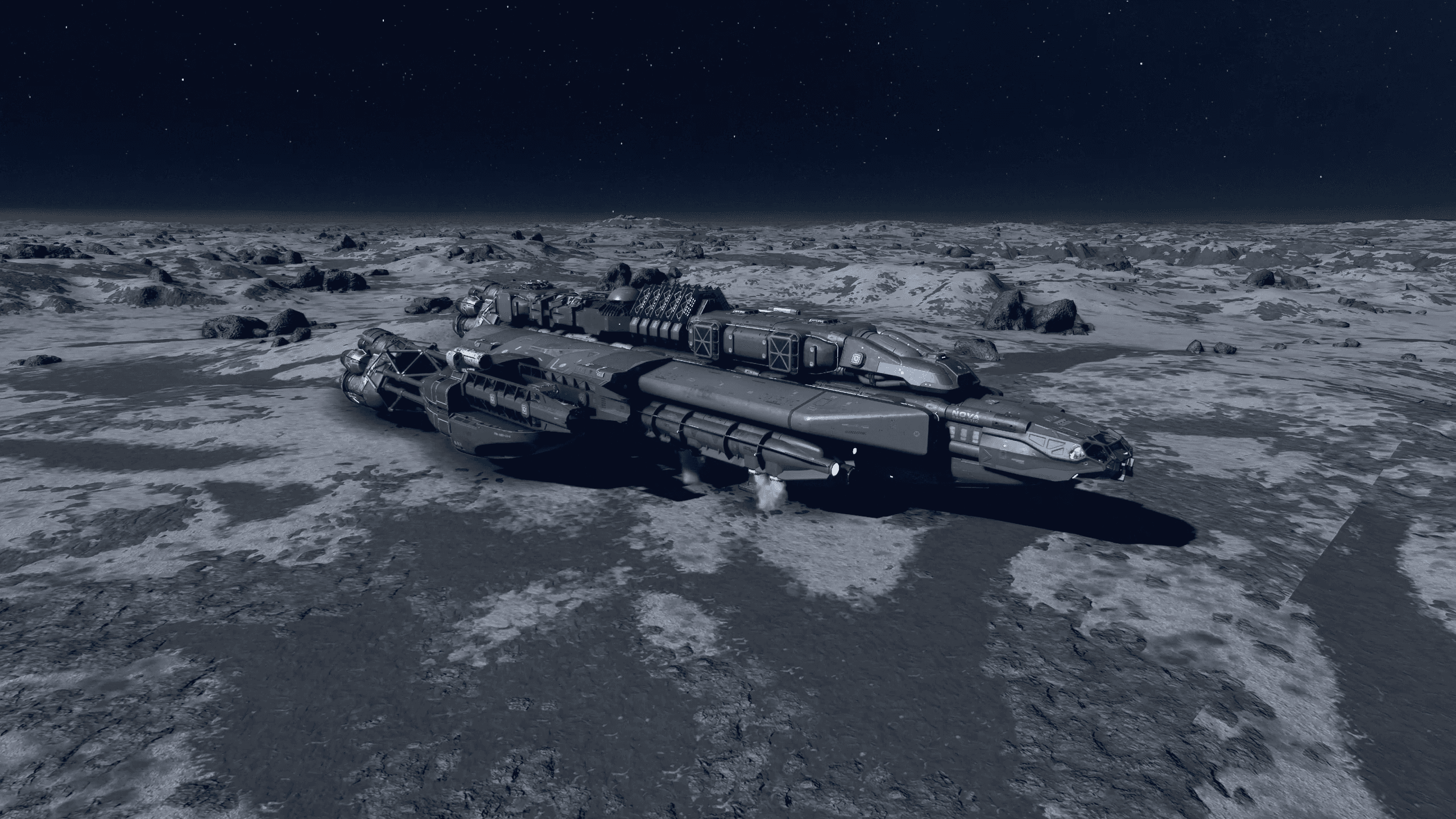
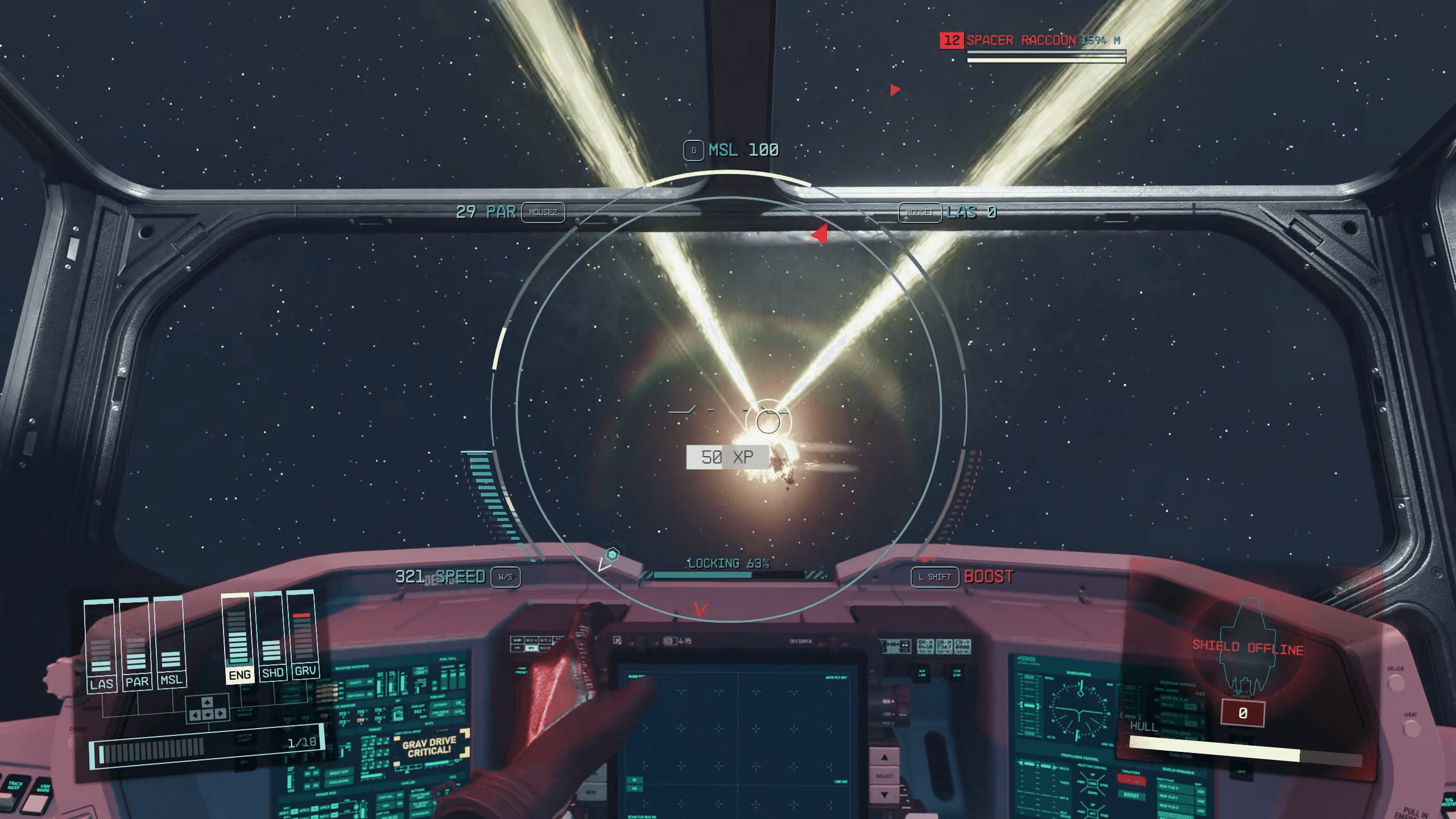
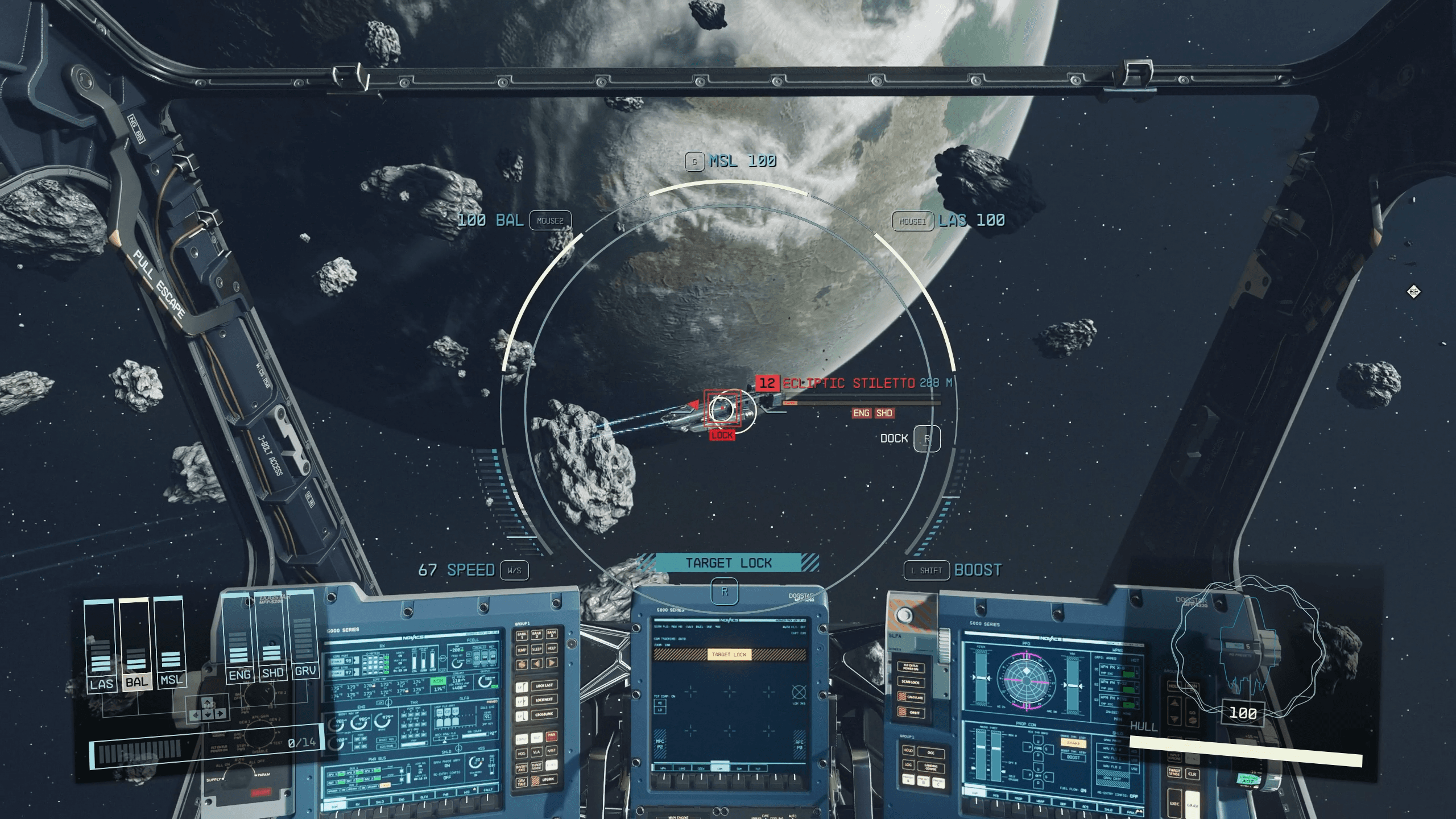
Taking the combat element out of the equation for a second I think everything else about ships is awesome. Customizing your ship will no doubt be the highlight of the game, and not because it leads to an engaging combat system, but because the customization and flexibility of the system I mentioned before allows players to really live that space RPG fantasy. It’s an end-game endeavor that requires a ton of credits to do right, but the sheer possibilities will excite almost anyone’s imagination.
I’d also be remiss if I didn’t drill a little deeper into outposts. Again, this is familiar territory if you’re coming from a Fallout game, and I have to say it’s another one of those systems I think many players will be sucked into. The team has gone through great lengths to expand the offerings giving players both function and form. On our team Livid spent the most time dabbling in this system and for the most part he enjoyed it. Building a space base is a fantasy I think a lot of RPG fans are going to revel in but there are some nuances of the system that can be frustrating like cargo management and connecting your outposts. All things that you can figure out with a little time and practice.
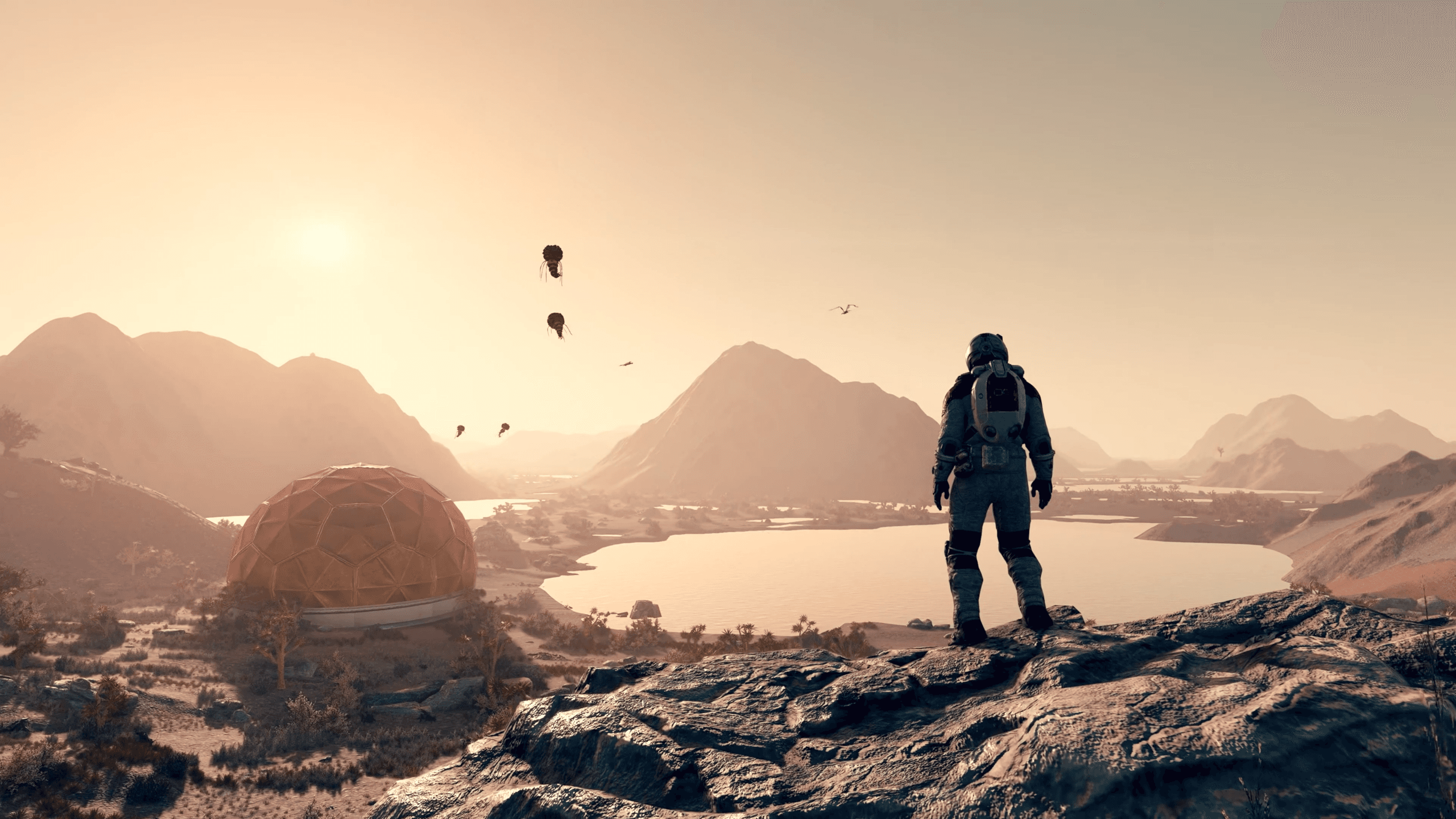
The Final Verdict
With over 100 hours played in the game I feel confident saying I’ve experienced a core chunk of Starfield, but to say I’ve scoured every corner of the universe, dug deep into every nuance of every system would simply not be true. That being said I stand by my claim at the beginning of the video, Starfield is Bethesda’s best game they’ve created. To some players it’ll be a GOTY contender, simply because of the space setting, the immersive RPG elements, and the nostalgia that comes with the developer’s history, but for others the game will simply be great.
I can’t stress enough how impressive the experience is when you consider how massive it actually is. The sheer breadth of the developed content is staggering, and I don’t think any released game has come close to capturing this level of scale and scope, but because of its size there are some hangups, primarily ones that have dogged Bethesda for years. If you know what you like, and you like Bethesda games Starfield will go down in your book as one of the greatest games of all time, and once mods hit the scene, oh boy, because that potential is ridiculous, but for those that are expecting cutting edge innovation at every turn, Starfield doesn’t deliver on that particular front.
My personal take, I love Starfield. I think ambition is good and it’s clear there is so much passion behind this game. Are the bugs silly, sometimes annoying, yes. Could the combat have been overhauled even more to deliver a polished experience, for sure. But did I have the time of my life building a ship, unpacking story moments, and becoming the space pirate I always wanted to be? Absolutely.




